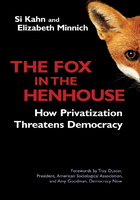
第3章 Foreword by Amy Goodman
ON JULY 7, 2005, four bombs exploded in London, killing scores of morning commuters, injuring hundreds of others. It was the biggest attack on London since World War II. In the midst of the wall-to-wall media coverage in the United States, Brit Hume, managing editor of Fox News Channel, shared his personal reaction: “My first thought when I heard—just on a personal basis—when I heard there had been this attack, and I saw the futures this morning, which were really in the tank, I thought, ‘Hmmm, time to buy.’ Others may have thought that as well.”
Maybe how to profit from the killing was the first thought in the Fox newsroom. But for many around the globe, the response was horror and … familiarity. That point was underscored when CNN's chief international correspondent Christiane Amanpour's live broadcast from the streets of London was interrupted by an uninvited guest, who shouted: “Tell the truth about why this war happened! Don't touch my bike! Tell the truth about what happened here! We're in Iraq. That's why. That's why it happened…. There were fifty killed in Iraq.”
The interloper's last point is key: at the time of the London bombings, the same number of people were being killed daily in Iraq. Multiply this body count week after week and you begin to get a sense of the reality of Iraq. This is not to minimize in any way the London tragedy. The global media coverage of the London attacks should be the model for the coverage of the daily violence in Iraq: the naming of names of those lost, the interviews with their families, the stories of heroism of those who tried to save the lives of the victims.
Instead, the bloody images of invasion and occupation are covered up by what has become one of the Pentagon's most effective xiii weapons: the U.S. media. The corporate newspapers and networks spread the lies of the “oilygarchy” in Washington—President George Bush, a failed oilman; Vice President Dick Cheney, former CEO of Halliburton, the largest oil services company in the world; Secretary of State Condoleezza Rice, longtime member of the Chevron board of directors (the company named an oil tanker after her); and Andrew Card, White House chief of staff, former chief lobbyist for General Motors.
This is the “ownership society” created by privatization, and the corporate media that serves it provides a crucial example of what Si Kahn and Elizabeth Minnich write about in The Fox in the Henhouse: How Privatization Threatens Democracy. The carefully choreographed marketing of the Iraq war could only have occurred with the massive media consolidation in for-profit corporate hands that now exists in the United States.
I call privatization and consolidation of the public airwaves the Clear Channeling of America. Clear Channel Communications went from owning one radio station in San Antonio, Texas, in 1972, to owning twelve hundred radio stations, thirty-six television stations, and 776,000 advertising displays in sixty-six countries. The company's explosive expansion occurred in the wake of the Telecommunications Act of 1996, a Clinton/Gore–sponsored giveaway of our airwaves that removed long-standing restrictions on how many stations a single company could own in one listening area. Privatizers hate barriers to monopoly.
Shortly after 9/11, filmmaker Michael Moore received a confidential memo forwarded to him by a radio station manager in Michigan. It came from Clear Channel, the radio conglomerate that owns that manager's station. “The company,” Moore wrote, “has ordered its stations not to play a list of 150 songs during this ‘national emergency.’ The list, incredibly, includes ‘Bridge Over Troubled Water,’ ‘Peace Train,’ and John Lennon's ‘Imagine.’”
Privatizing corporate moguls want ever more monopolizing control over what we hear, think, and talk about. While then–Secretary of State Colin Powell helped lead the war on Iraq, his son Michael Powell, chair of the Federal Communications Commission (FCC), tried to hand over the airwaves and newspapers to still fewer tycoons by further loosening restrictions on how many media outlets a single company could own. This would have enabled Rupert Murdoch, the man who brings us the flag-waving, Bush-friendly Fox News Channel, to control the airwaves of entire cities.
For the sake of the public good, for democracy, we must keep the media a public commons, open to the free and vibrant exchange of ideas. Pacifica Radio and the independent media outlets that the Pacifica model has inspired are part of a countertradition about which Kahn and Minnich also write.
Pacifica founder Lew Hill welcomed people to the airwaves of its first station, KPFA, on April 15, 1949. It sought funding from its listeners, not the corporations “that have nothing to tell and everything to sell, that are raising our children today,” as journalism professor George Gerbner puts it. Today, the Pacifica network is part of a vigorous independent global media movement.
I see the media as a huge kitchen table stretching across the globe that we all sit around to discuss the most important issues of the day. If the wholesale privatization of our media and the public good as a whole is to be stopped, each of us must make a commitment to speak out, educate, and organize. In The Fox in the Henhouse, Elizabeth Minnich and Si Kahn set out critical food for thought for this public discourse. Your voice, too, is needed.
AMY GOODMAN
“Democracy Now!”